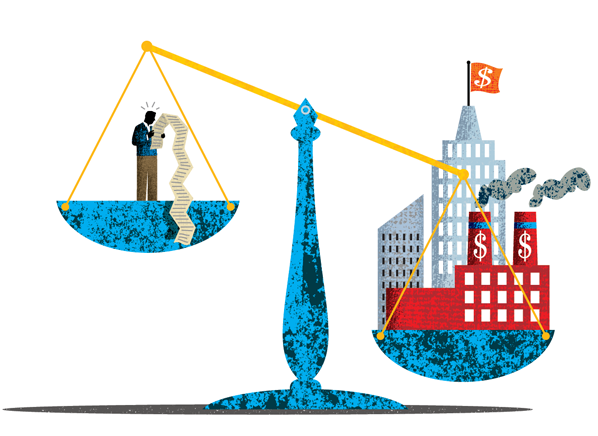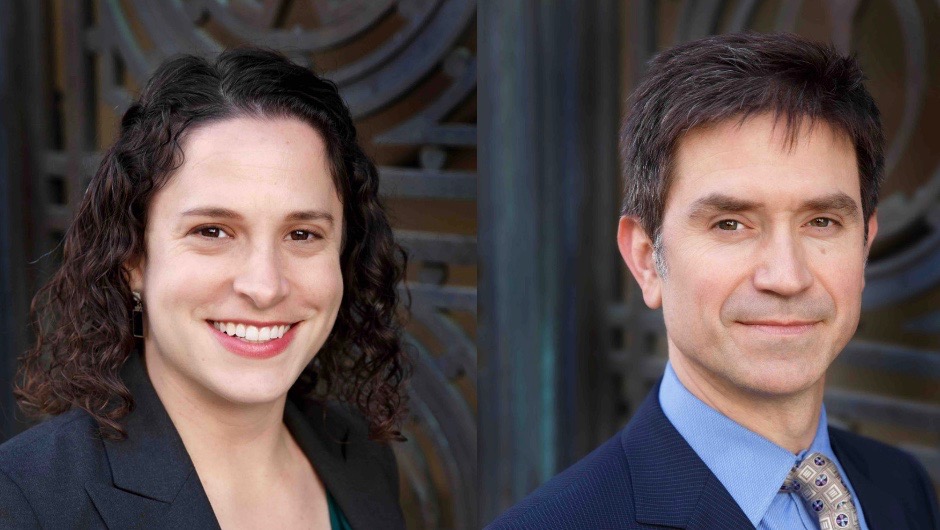Epic Systems And The Erosion Of Federal Class Actions
Amanda Karl and Steven Tindall, attorneys with Gibbs Law Group, LLP
Over the last decade, the U.S. Supreme Court has issued several decisions making it progressively harder for consumers and employees to vindicate their rights through class actions. These cases, the latest of which was the recent SCOTUS decision in Epic Systems, are largely technical in nature; as a result, they don’t make headlines outside of the legal press. Taken together, though, they have made class litigation riskier and more difficult for would-be plaintiffs and their attorneys alike, reducing the likelihood that corporations will be held liable for conduct that affects groups of their employees and consumers.
Although plaintiffs and their lawyers can (and do) still bring meritorious class actions in federal court, Epic Systems, particularly in the context of its predecessors, confirms that it would be wise for plaintiffs to look for creative alternatives in state court.
Shifting Pleading Standards
One of the ways the Supreme Court made it more difficult for plaintiffs to bring collective or class actions against corporations was by stiffening the standard for sufficient pleading in a complaint at the motion-to-dismiss phase. For several decades, the accepted standard was that claims were sufficiently pled “unless it appear[ed] beyond doubt that the plaintiff can provide no set of facts in support of his claim which would entitle him to relief.”[1] But in the late 2000s, in Twombly and Iqbal, the court replaced that burden with a significantly higher one. Plaintiffs must now draft complaints with enough facts to make it “plausible,” not merely “conceivable,” that plaintiffs are entitled to the relief they seek.[2] Any allegations deemed too formulaic to be entitled to an “assumption of truth” don’t count.[3]
This shift insulates corporate defendants from employees and consumers who believe they were wronged[4] by requiring plaintiffs to uncover more information about these corporations’ practices before they can compel discovery. The higher burden also means complaints must contain facts that are more difficult to find without it. Federal Rule of Civil Procedure 11 underscores the weight of this responsibility — it states that, by alleging facts, plaintiffs are representing that their contentions have, or will likely have, evidentiary support.[5] If plaintiffs fail to meet that standard, they may be subject to sanctions. Thus, after Twombly and Iqbal, defeating a motion to dismiss is harder — plaintiffs must assert more allegations, each of which must be justified by evidentiary support, that probe deeper into a corporation’s operations and decision-making to convince a court that victory is plausible, all before they are entitled to any discovery. This more onerous burden specifically disadvantages would-be plaintiffs who are consumers or low-level employees who have little access to the inner workings of the companies that they believe wronged them.
Raising the Bar for Class Certification
In 2011, in Wal-Mart Stores Inc. v. Dukes,[6] the Supreme Court interpreted Federal Rule of Civil Procedure 23 to make class certification more difficult for plaintiffs to attain.
As background, to certify a class, Rule 23 requires satisfaction of two parts: the prerequisite section and the class type section. Rule 23(a) contains four prerequisites, sometimes written with the acronym “CANT” (commonality, adequacy, numerosity and typicality), all of which must be met to certify a class. Additionally, a class must satisfy one of the three Rule 23(b) “class type” sets of requirements. In most instances, to obtain classwide monetary relief (as opposed to injunctive relief only), would-be class representatives are required under Rule 23 to show that common questions “predominate” over individual questions.
In Dukes, the court made clear that, to certify a class under Rule 23, plaintiffs must prove each of these requirements, rather than merely assert that the requirements can be met.[7] As with complaints, this showing requires plaintiffs to perform more work earlier in the case. The court explained a few years later in Comcast that this higher burden also encompasses damages models.[8] This means that where classes seek monetary relief, plaintiffs must present a damages model where individual questions do not “predominate” over common ones at the class certification stage. And frequently this requires a costly investment — the hiring of a damages expert — even before proof on the rest of the claim is tested at summary judgment. This higher burden earlier in the case makes it riskier and more expensive for consumers, employees, and their attorneys to bring cases, and less onerous for defendant corporations to defend against them.
In addition to requiring factual proof for each class certification requirement, the court in Dukes made commonality, one of the four prerequisites, more difficult to attain than the rule itself suggests. The plain text of Rule 23(a) requires for certifying a class that “there are questions of law or fact common to the class.” After Dukes, though, questions that seem common would not necessarily suffice. Rather, to satisfy commonality, the “common” question now must be not only common but also of a specific type, such that the answer to the question will resolve an issue “central” to all claims “in one stroke.”[9] The court, therefore, read into the Rule 23(a) a further “centrality” requirement, which raised the bar for plaintiffs to establish a class that, in turn, would expose companies to potentially far-ranging liability.
Class Waivers in Arbitration Agreements
Most recently, the court made class actions for consumers and employees more difficult in Epic Systems, where it expanded to the employment context the notion that class waivers in arbitration agreements are generally appropriate and legal. Now, based on language that corporations insert into their form consumer and employment contracts — contracts that are rarely, if ever, negotiated with consumers and employees — the only option for recourse for many consumers and employees is a confidential, unappealable, individual proceeding. In many instances, this is not a real option for recourse or accountability.
Epic Systems’ origin was in 2011, when the court decided Concepcion,[10] concluding that state courts cannot hold unconscionable class waivers in arbitration clauses in adhesive consumer contracts under the Federal Arbitration Act. Although the court noted that most if not all consumer contracts are “adhesive” at this point,[11] it nevertheless concluded that the Federal Arbitration Act’s purpose of enforcing private arbitration agreements left no room for California’s unconscionability determination because classwide arbitration is inconsistent with “fundamental” arbitration.[12] Put differently, the court reasoned that even though class arbitration is a form of arbitration, and even though consumers generally don’t have the opportunity to negotiate their contracts with corporations, to deem these non-negotiated, one-sided contracts unconscionable undermines the sanctity of the arbitration clause and its class waiver. Unlike Concepcion’s internal logic, the takeaway for would-be consumers was simple: if a class waiver is in an arbitration clause, they are stuck with individual arbitration.
With the court’s blessing, more and more companies sought to immunize themselves from classwide liability by incorporating class waivers into their arbitration agreements.[13] For many plaintiffs seeking class and collective actions, these class waivers stop their case before they start — there is no path forward collectively, and it is often economically infeasible for plaintiffs’ attorneys to bring many of the smaller individual cases that might otherwise be part of a class. As Justice Stephen Breyer noted in his dissent, blocking collective action in this way leads “claimants to abandon their claims,”[14] a windfall for corporations. And the Supreme Court saw no problem with this reality, concluding in 2013 that an arbitration clause’s class waiver reigns supreme, even where the cost of pursuing individual arbitration outweighs the sought-after monetary recovery.[15]
Epic Systems expanded Concepcion, concluding that federal labor law does not block arbitration class waivers, rendering them permissible in the employment context, too. Justice Ruth Bader Ginsburg noted that this additional barrier will lead to the underenforcement of employment law stemming from this restriction on collective power,[16] as has already happened in the consumer context.
What Next?
Plaintiffs and their attorneys will continue filing class actions to vindicate the rights of employees and consumers, even in light of these higher burdens. After all, as corporations become bigger and operations become more automated and uniform, they will continue to harm employees and consumers in ways that are similar (if not identical) and, therefore, amenable to class treatment.
But for all the times when bringing a class won’t work in light of the infringement on employees’ and consumers’ ability to seek classwide relief, it is time for class action practitioners to look to state courts and state legislatures for relief. In California, the Private Attorneys General Act of 2004[17] is a great example of a statute that allows the private enforcement of employees’ rights when corporations have harmed large swaths of them, while avoiding these larger procedural obstacles in federal court. Under PAGA, an “aggrieved employee” may bring a civil action on her own behalf and on behalf of other employees to recover civil penalties for California Labor Code violations.[18] PAGA actions are not subject to federal class action requirements, and the California Supreme Court has concluded that one’s right to bring a PAGA action is neither waivable nor preempted by the Federal Arbitration Act.[19]
Statutes similar to PAGA are being considered in other states, including New York.[20]
It would be wise for California employees to take advantage of PAGA in light of all these procedural hurdles in class actions, and for other state legislatures to consider implementing a PAGA-like procedure for employees. Additionally, states should consider passing a consumer version of PAGA. Such a statute would allow consumers to enforce state consumer laws on behalf of other affected consumers. Although the Supreme Court’s recent decisions have increased the burdens on class action plaintiffs and their counsel, many cases that might not be viable in federal court could work under PAGA or a similar procedure in state court.
This is a reblog of an article that first appeared in Law360 Class Action Report 07.05.18.
[1] Conley v. Gibson, 355 U.S. 41, 45-46 (1957), abrogated by Bell v. Atl. Corp. v. Twombly, 550 U.S. 544 (2007).
[2] Ashcroft v. Iqbal, 556 U.S. 662, 680 (2009).
[3] Id. at 680-81.
[4] See Twombly, 550 U.S. at 596 (Stevens, J., dissenting) (“The transparent policy concern that drives the decision is the interest in protecting antitrust defendants—who in this case are some of the wealthiest corporations in our economy—from the burdens of pretrial discovery.”).
[5] Fed. R. Civ. P. 11(b).
[6] 564 U.S. 338 (2011).
[7] Id. at 350.
[8] Comcast Corp. v. Behrend, 569 U.S. 27 (2013).
[9] Dukes, 564 U.S. at 350.
[10] AT&T Mobility LLC v. Concepcion, 563 U.S. 333 (2011)
[11] Id. at 346-47.
[12] Id. at 344.
[13] Epic Sys. Corp. v. Lewis, 138 S. Ct. 1612, 1645 n.12 (2018) (Ginsburg, J., dissenting) (citing “2017 Carlton Fields Class Action Survey: Best Practices in Reducing Cost and Managing Risk in Class Action Litigation 29 (2017), available at https://www.classactionsurvey.com/pdf/2017-class-action-survey.pdf”)
[14] Concepcion, 563 U.S. at 365 (Breyer, J., dissenting).
[15] Am. Express Co. v. Italian Colors Rest., 570 U.S. 228 (2013).
[16] Epic Sys., 138 S. Ct. at 1646-47 (Ginsburg, J., dissenting).
[17] Cal. Lab. Code § 2968, et seq.
[18] Iskanian v. CLS Transp. L.A., LLC, 59 Cal. 4th 348, 380 (2014).
[19] Id. at 382-89.
[20] See Josh Eidelson, California Helps Workers Sue Their Bosses. New York Has Noticed, BLOOMBERG (Sept. 29, 2017), https://www.bloomberg.com/news/articles/2017-09-29/california-helps-workers-sue-their-bosses-new-york-has-noticed ; The Center for Popular Democracy, https://populardemocracy.org/campaign/combating-wage-theft (last visited June 28, 2018).




